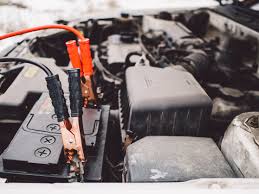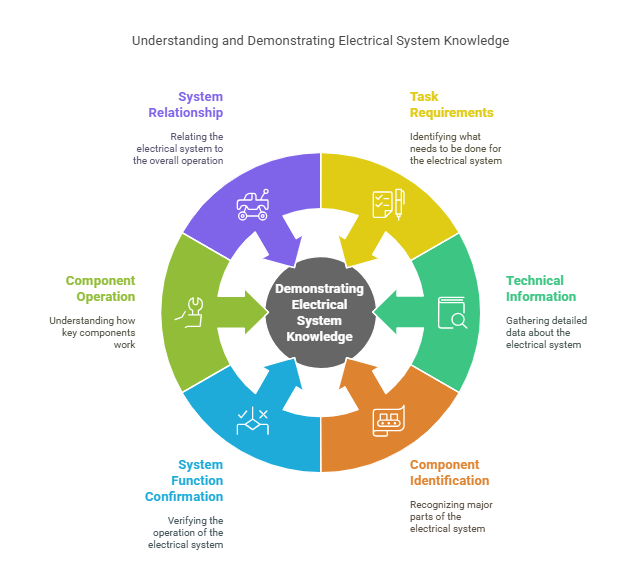Understanding Automotive Electrical Systems and Components
Posted by SkillMaker in Mar, 2025
What is a concise description of identifying automotive electrical systems and components?

Identifying automotive electrical systems and components involves recognising and understanding the various electrical parts and their functions within a vehicle. This includes systems responsible for ignition, lighting, signalling, charging, and more that are crucial for a vehicle’s operation and safety.
Listen to this article as a podcast
Why do people in the Automotive industry need to identify automotive electrical systems and components?
Professionals in the Automotive industry need to identify automotive electrical systems and components to diagnose and repair faults accurately, ensure compliance with safety standards, and enhance vehicle performance. This knowledge is essential for troubleshooting problems, performing regular maintenance, and making informed upgrades to automotive technology.
“Recognising electrical systems and components is fundamental for maintaining vehicle safety and performance, and vital for effective troubleshooting and repairs.”
What are the key components or elements of automotive electrical systems?
Key components of automotive electrical systems include:
- Battery: Provides electrical energy to start the engine and power various electronic devices.
- Alternator: Charges the battery and powers the electrical system when the engine is running.
- Starter Motor: Initiates engine operation by turning the engine flywheel.
- Ignition System: Generates a spark to ignite the air-fuel mixture in the engine’s cylinders.
- Lighting System: Includes headlights, tail lights, and interior lights that ensure visibility and safety.
What key terms, with descriptions, relate to automotive electrical systems and components?

Registered Trademark®
- Circuit: A complete path that allows electricity to flow and power components.
- Fuse: Protects electrical circuits from overloading by breaking the circuit if current exceeds a safe level.
- Relay: An electrically operated switch used to control circuits.
- Grounding: Connecting components to the vehicle’s chassis for safety and to complete circuits.
- Voltage Regulator: Maintains a constant voltage level to protect the battery and electrical components.
Who is typically engaged with operating or implementing automotive electrical systems?
Automotive electricians, mechanics, and auto engineers are typically responsible for operating and implementing automotive electrical systems. Their roles involve diagnosing electrical issues, repairing components, and ensuring systems operate efficiently.
How does identifying automotive electrical systems and components align or integrate with other components of the Automotive industry in Australia?

Understanding electrical systems is crucial for the correct functioning of various automotive technologies, including advanced driver assistance systems (ADAS), powertrains, and communication systems. This knowledge supports service integration with vehicle maintenance, enhancing reliability and safety on Australian roads.
Where can the student go to find out more information about automotive electrical systems and components?
What job roles would be knowledgeable about automotive electrical systems and components?
Roles include:
- Automotive Electricians
- Mechanics
- Auto Engineers
- Vehicle Technicians
- Service Technicians
What is identifying automotive electrical systems and components like in relation to sports, family, or schools?

Identifying automotive electrical systems is like organising a sports team, where each player (or component) has a specific role that contributes to the overall performance. In a family context, it’s akin to understanding each member’s chores and responsibilities for a smooth-running household. For schools, it reflects ensuring each part of the curriculum complements others to provide a comprehensive education.
(The first edition of this post was generated by AI to provide affordable education and insights to a learner-hungry world. The author will edit, endorse, and update it with additional rich learning content.)
(Skillmaker – 2025)

 Post Tagged with
Post Tagged with